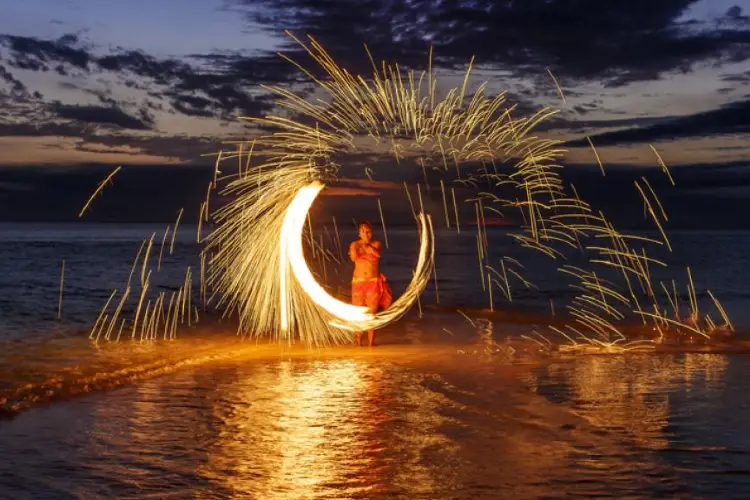Understanding Fijian Culture: A Brief Overview
Fiji’s rich tapestry of cultural heritage is woven from the traditions of its indigenous Fijians and the influences of Indian, European, and Chinese communities. To truly engage with Fijian culture, it is essential to appreciate the significance of community life, oral traditions, music, dance, and art. The Fijian way of life is deeply communal, centered around the ‘vanua’ or land, which encompasses the people, their culture, and the environment. This interconnectedness is celebrated through numerous festivals and traditional events throughout the year. Visitors from New Zealand will find that many aspects of Fijian culture resonate with their own indigenous Māori traditions, particularly in the emphasis on communal gatherings and storytelling. Engaging with local customs can provide a profound insight into the Fijian ethos. For a more comprehensive understanding, you can explore resources available at Fiji Islands. When planning your trip, consider visiting local villages where you can participate in cultural activities such as traditional weaving or wood carving. These experiences not only enrich your understanding of Fijian art forms but also foster connections with local artisans.Festivals That Celebrate Fijian Heritage
Fiji hosts a plethora of vibrant festivals throughout the year, each showcasing unique cultural aspects and traditions. One of the most celebrated is the Hibiscus Festival, held annually in Suva. This festival features colorful parades, traditional music, and dance performances, offering a glimpse into the heart of Fijian culture. Another significant event is the Bula Festival, which is celebrated in Nadi and emphasizes Fijian hospitality and community spirit. Visitors are encouraged to immerse themselves in the festivities by participating in local games, enjoying traditional food, and engaging with the friendly locals. For New Zealanders, attending these festivals provides an opportunity to share cultural experiences and foster connections within the Pacific community. The warmth and inclusiveness of Fijian culture will make you feel at home, and you can celebrate alongside locals, creating lasting memories. For more information about upcoming festivals, check out Fiji Islands.Traditional Fijian Cuisine: A Culinary Journey
Fijian cuisine is a vibrant blend of flavors influenced by indigenous ingredients and cultural exchanges. Traditional dishes like ‘lovo’ (a feast cooked in an underground oven) and ‘kokoda’ (Fijian ceviche) are must-tries for any visitor. Engaging with local chefs during cooking classes can provide deeper insights into these culinary traditions while offering a hands-on experience. For New Zealand travelers, the use of fresh seafood, root vegetables, and tropical fruits in Fijian cooking will feel familiar. Many cooking classes incorporate a fusion of Fijian and New Zealand culinary styles, allowing you to create dishes that celebrate both cultures. Consider visiting local markets where you can taste fresh produce and traditional snacks. These markets not only offer delicious food but also an opportunity to connect with local vendors and learn about their culinary practices. For more culinary experiences, refer to Fiji Islands.Engaging with Fijian Arts and Crafts
Fijian arts and crafts are a vibrant expression of the islands’ cultural identity. From intricate wood carvings to beautiful woven mats and baskets, these crafts tell stories of tradition and heritage. Participating in workshops where you can learn to create your own handicrafts is an enriching experience. New Zealanders may find parallels in the Māori tradition of carving and weaving, creating a shared understanding of the importance of these art forms. By engaging with local artisans, you gain not only practical skills but also an appreciation for the cultural significance behind each piece. Visiting local galleries and craft markets can further enhance your experience. These venues often feature works from local artists, providing an opportunity to purchase authentic Fijian crafts while supporting the local economy. For more information on arts and crafts, visit Fiji Islands.Participating in Traditional Ceremonies
Traditional ceremonies are integral to Fijian society, marking significant life events such as weddings, births, and funerals. These ceremonies often involve rituals that highlight community bonds and respect for ancestors. Visitors are often welcomed to witness or even participate in these events, providing a unique glimpse into the Fijian way of life. For travelers from New Zealand, experiencing these ceremonies can foster a deeper understanding of the similarities and differences between Fijian and Māori customs regarding spirituality and community. Participating in a ‘sevusevu’ ceremony, where guests present kava as a sign of respect, is a memorable way to engage with local traditions. To find out more about traditional ceremonies and how to respectfully engage in them, consult local tourism resources or Fiji Islands.Exploring Fijian Music and Dance
Music and dance are vital components of Fijian culture, often used to tell stories and celebrate important events. Traditional music features instruments like the ‘lali’ (drum) and the ‘bulu’ (flute), while dances such as the ‘meke’ showcase the islands’ rich storytelling tradition through movement. Visitors can experience live performances at cultural festivals or local events, where they can appreciate the passion and skill of Fijian artists. For New Zealanders, engaging with Fijian music can evoke familiar rhythms and styles, creating a joyful connection across cultures. Consider taking part in dance workshops or music sessions offered by local cultural centers. These experiences not only provide entertainment but also allow for personal engagement with Fijian traditions. For more details on music and dance experiences, check out Fiji Islands.Connecting with Fijian Communities
Building connections with local communities is one of the most rewarding aspects of experiencing Fijian culture. Many villages welcome visitors to participate in daily life, offering opportunities to learn about traditional practices, share meals, and engage in community projects. For New Zealand travelers, this kind of cultural exchange can enhance your understanding of Pacific Islander cultures and foster meaningful relationships. Engaging with local families through homestays or community initiatives allows for an authentic experience that goes beyond typical tourist interactions. To find community engagement opportunities, consult local tourism boards or visit Fiji Islands for more information on community-based tourism initiatives. These experiences not only enrich your travel but also contribute positively to the local communities you visit.FAQs
What are some key cultural experiences to enjoy in Fiji?
Fiji offers a variety of cultural experiences, including traditional dance performances, kava ceremonies, and village visits. Engaging with local artisans, participating in cooking classes, and attending festivals are also great ways to immerse yourself in Fijian culture. Exploring these experiences can be a highlight during your Fiji island escapes.
When are the main festivals celebrated in Fiji?
Fiji celebrates several vibrant festivals throughout the year, such as the Hibiscus Festival in Suva, which showcases music, dance, and local cuisine. The Bula Festival is another popular event that highlights Fijian culture and hospitality. Planning your Fiji island escapes around these festivals allows for an enriching cultural experience.
How can I respectfully engage with local traditions in Fiji?
Respect is paramount when engaging with local traditions in Fiji. Always ask for permission before taking photographs, especially during ceremonies. Dress modestly when visiting villages, and participate in cultural activities with an open heart and mind. This respectful approach enhances your experience and fosters goodwill during your Fiji island escapes.
Are there any traditional Fijian dishes I should try?
Yes, Fijian cuisine is delicious and diverse. Some must-try traditional dishes include kokoda (marinated raw fish), palusami (taro leaves filled with coconut cream), and lovo (food cooked in an underground oven). Sampling these dishes adds a flavorful dimension to your Fiji island escapes.
What should I know before visiting a Fijian village?
Before visiting a Fijian village, it’s important to follow local customs and practices. Dress modestly, remove your hat and sunglasses upon entering, and be prepared to participate in a sevusevu ceremony, where you present kava as a sign of respect. Understanding these customs enhances your experience during your Fiji island escapes.
Can children participate in cultural activities in Fiji?
Absolutely! Many cultural activities in Fiji are family-friendly, and children are often welcomed to participate in traditional dances, craft making, and cooking classes. Engaging with local traditions can be an educational and fun experience for families during their Fiji island escapes.
How can I find authentic cultural experiences in Fiji?
To find authentic cultural experiences in Fiji, consider connecting with local tour guides or community organizations that focus on cultural tourism. Engaging with local villagers directly can also lead to unique experiences that are not widely advertised. This approach ensures that your Fiji island escapes are both genuine and enriching.
References
- Fiji Islands Official Tourism Website – The official tourism site for Fiji, offering insights into cultural experiences, festivals, and local traditions.
- Lonely Planet – Fiji – A travel guide that provides information on Fijian culture, festivals, and tips for engaging with local customs.
- Fiji Guide – A comprehensive resource for travelers, highlighting cultural experiences, local events, and traditional practices in Fiji.
- TripSavvy – Understanding Fijian Culture – An article explaining the cultural norms, traditions, and festivals that define Fijian society.
- National Geographic – Fijian Culture – An exploration of the rich cultural heritage of Fiji, including insights into traditional practices and community festivals.







